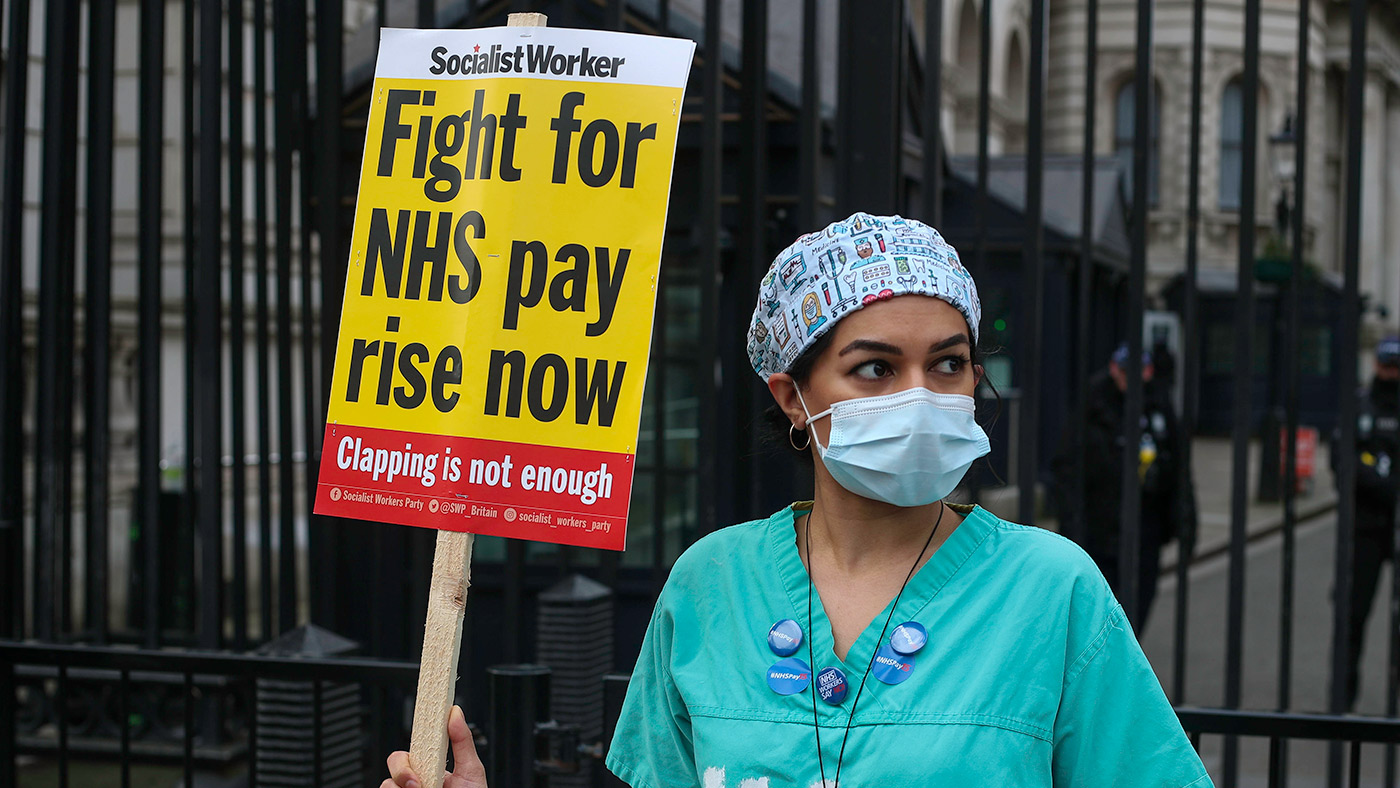Australian flu arrives in the UK: what are the symptoms and is there a vaccine?
The people most at risk and what can be done to prevent it

A free daily email with the biggest news stories of the day – and the best features from TheWeek.com
You are now subscribed
Your newsletter sign-up was successful
First it was bird flu, then swine, and now Australian flu is latest deadly influenza to hit our shores, causing a spike in hospital admissions and mounting panic.
What are the symptoms?
The most common signs to look out for are fever, nausea, sore throat, diarrhoea and headaches.
The Week
Escape your echo chamber. Get the facts behind the news, plus analysis from multiple perspectives.

Sign up for The Week's Free Newsletters
From our morning news briefing to a weekly Good News Newsletter, get the best of The Week delivered directly to your inbox.
From our morning news briefing to a weekly Good News Newsletter, get the best of The Week delivered directly to your inbox.
Why is it worse than normal flu?
Despite exhibiting many of the same symptoms as your average garden-variety flu, the Influenza A virus subtype H3N2 is a much more virulent strain. According to The Guardian, “the spread of Australian flu is potentially the worst outbreak in 50 years”.
Australia, where the strain originated, has experienced its worst winter flu season in nearly a decade, with the bug blamed for more than 300 deaths. In the UK, 17 people were admitted to intensive care with Australian flu last week alone.
A number of deaths in Ireland have already been attributed to the strain, and Public Health England says the number of reported cases has steadily risen over the past two weeks.
A free daily email with the biggest news stories of the day – and the best features from TheWeek.com
How bad could it get?
Virologists have turned to history to examine the potential impact of the outbreak. Specifically, they are looking at the 1968 Hong Kong flu epidemic, which was caused by the same strain and which killed between a million and four million people worldwide. This year’s outbreak is not expected to be anywhere near as severe.
However, the Hong Kong flu outbreak pales in comparison to the Spanish flu epidemic, which broke out shortly after the end of the First World War and is thought to have caused the deaths of between 25 million and 50 million people worldwide.
Who is most at risk?
Unlike Spanish flu, which affected mainly the young, most influenzas, including H3N2, predominantly hit older and more vulnerable members of society. The BBC reports that based on the events of last winter, when a similar strain to H3N2 broke out, the elderly seem likely to be the demographic group most at risk of infection.
A quick look at flusurvey.org.uk, a constantly updated online map of the UK where people can register their symptoms, shows flu-related hospital admissions have tripled in the past few days, “with one in four of those patients suffering from Australian flu”, says The Daily Telegraph.
The arrival of Aussie flu comes amid a winter crisis in the health service, with NHS England urging hospitals to defer planned operations and routine outpatient appointments.
Yet doctors have been quick to stress that while GP visits for influenza have seen a sharp rise in 2018, “they are still comparable to the previous winter and are nowhere near as high as in 2008-09, when the swine flu pandemic hit the UK”, says the BBC.
What can be done to prevent it?
A vaccine is available, and adults aged over 65, pregnant women and people with underlying health conditions are advised to get a free jab.
This is not a guarantee of protection, though. Public Health England estimates the typical effectiveness of the flu vaccine is between 40% and 60%.
Another problem is that the vaccine can take up to two weeks to kick in, “and there are fears that it is losing its effectiveness with elderly people”, says The Guardian.
People already exhibiting mild symptoms are advised to stay in bed, drink lots of water and dose up on ibuprofen and paracetamol.
When should I go to hospital?
According to the Telegraph, if you develop a sudden chest pain, have difficulty breathing or start coughing up blood, you should call 999 or go to A&E.
You should also contact your GP if your symptoms don’t improve after seven days.
-
 The ‘ravenous’ demand for Cornish minerals
The ‘ravenous’ demand for Cornish mineralsUnder the Radar Growing need for critical minerals to power tech has intensified ‘appetite’ for lithium, which could be a ‘huge boon’ for local economy
-
 Why are election experts taking Trump’s midterm threats seriously?
Why are election experts taking Trump’s midterm threats seriously?IN THE SPOTLIGHT As the president muses about polling place deployments and a centralized electoral system aimed at one-party control, lawmakers are taking this administration at its word
-
 ‘Restaurateurs have become millionaires’
‘Restaurateurs have become millionaires’Instant Opinion Opinion, comment and editorials of the day
-
 Captain Tom charity closes to donations amid daughter’s pool row
Captain Tom charity closes to donations amid daughter’s pool rowSpeed Read Hannah Ingram-Moore to appeal council order to demolish spa complex at her home
-
 The Week Unwrapped: Sex and health, the Earth’s core and another new year
The Week Unwrapped: Sex and health, the Earth’s core and another new yearpodcast Is the NHS failing British women? What’s going on at the centre of our planet? And what’s in a date?
-
 National nursing strike: should the patient ‘always come first’?
National nursing strike: should the patient ‘always come first’?Talking Point Recent YouGov poll found that 65% of public approves of strike action
-
 The science behind lab-grown blood
The science behind lab-grown bloodfeature Development of ‘absolute game changer’ could help those with sickle cell and other conditions
-
 ‘Moving CBBC online isn’t modernisation – it’s dangerous’
‘Moving CBBC online isn’t modernisation – it’s dangerous’Instant Opinion Your digest of analysis from the British and international press
-
 The Week Unwrapped: Quitting China, social age checks and dental deserts
The Week Unwrapped: Quitting China, social age checks and dental desertspodcast Why has AirBnB given up on China? Are social networks finally taking age limits seriously? And why is it so hard to find a dentist?
-
 ‘Negotiation with Putin would be a moral disaster’
‘Negotiation with Putin would be a moral disaster’Instant Opinion Your digest of analysis from the British and international press
-
 The Week Unwrapped: Home-working pay cuts, Taiwan and Cinderella
The Week Unwrapped: Home-working pay cuts, Taiwan and Cinderellapodcast Should people who work from home earn 20% less? Is Taiwan at risk of a Chinese invasion? And what does the failure of Andrew Lloyd Webber’s latest production tell us about post-Covid theatre?